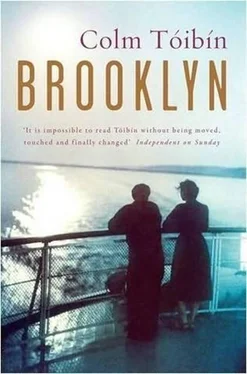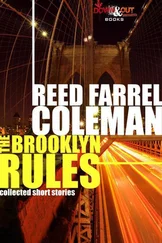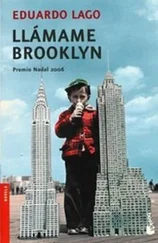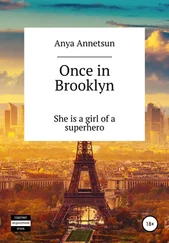"Rough and ready might be a better way of putting it," the other Miss Murphy interrupted.
"But we have plenty of soup and stout for them while they're waiting. They're very nice, all of them."
"They don't mind waiting, and if they do, they don't say."
"Are they all men?" Eilis asked.
"A few couples come because she is too old to cook, or they're too lonely, or whatever, but the rest are men," Miss Murphy said. "And they love the company and it's Irish food, you know, proper stuffing and roast potatoes and Brussels sprouts boiled to death." She smiled at Eilis and shook her head and sighed.
As soon as ten o'clock mass was over people began to call by. Father Flood had filled one of the tables with glasses and bottles of lemonade and sweets for the children. He made everyone who came in, including women with fresh hairdos, put on a paper hat. Thus as the men began to arrive to spend all of Christmas Day in the hall they were barely noticed among the crowd. It was only later, after midday, when the visitors began to disperse, that they could be seen clearly, some of them sitting alone with a bottle of stout in front of them, others huddled in groups, many of them stubbornly still wearing cloth caps instead of paper hats.
The Miss Murphys were anxious for the men who came first to gather at one or two of the long tables, enough to make a group who could be served soon with bowls of soup so that the bowls could be washed and used again by the next group. As Eilis, on instructions, went out to encourage the men to sit down at the top table nearest to the kitchen, she observed coming into the hall a tall man with a slight stoop; he was wearing a cap low over his forehead and an old brown overcoat with a scarf at the neck. She paused for a moment and stared at him.
He stood still as soon as he had closed the main door behind him, and it was the way he took in the hall, surveying the scene with shyness and a sort of mild delight, that made Eilis sure, for one moment, that her father had come into her presence. She felt as though she should move towards him as she saw him hesitantly opening his overcoat and loosening his scarf. It was how he stood, taking full slow possession of the room, searching almost shyly for the place where he might be most comfortable and at ease, or looking around carefully to see if he knew anybody. As she realized that it could not be him, that she was dreaming, he took off his cap and she saw that the man did not look like her father at all. She glanced around her, embarrassed, hoping that no one had noticed her. It was something, she thought, that she could tell no one, that she had imagined for an instant that she had seen her father, who was, she remembered quickly, dead for four years.
Although the first table had not been filled, she turned and went back to the kitchen and set about checking the number of plates for the first serving, even though she knew she had the right number, and then lifting the lid of the huge saucepan to check if the Brussels sprouts were boiling, even though she knew that the water was not hot enough yet. When one of the Miss Murphys asked her if the nearest table had been filled up and if every man had a glass of stout, Eilis turned and said that she had done her best to move the men to the tables but maybe Miss Murphy could do better. She tried to smile, hoping that Miss Murphy did not notice anything strange.
For the next two hours she was busy, piling food on to plates, carrying them out two at a time. Father Flood carved turkeys and hams as they arrived, piling stuffing and roast potatoes into bowls. For a while, one Miss Murphy devoted herself entirely to washing up and drying and cleaning and clearing space as her sister and Eilis served the men, making sure to leave nothing out-turkey, ham, stuffing, roast potatoes and Brussels sprouts-and making sure in their haste not to give anyone too much or too little.
"There's plenty of food now, so don't worry," Father Flood shouted, "but no more than three potatoes a head and go easy on the stuffing."
When they had enough meat carved, he went outside and busied himself opening more bottles of stout.
At first the men seemed shabby to Eilis and she noticed body odours from a good number of them. As they sat down and drank their stout waiting for the soup or the food, she could not believe there were so many of them, some of them so poor-looking and so old, but even the younger ones had bad teeth and appeared worn down. Many were still smoking, even as the soup came. She did her best to be polite to them.
She observed a change in them soon, however, as they began to talk to each other or shout greetings down the table or enter into low, intense conversations. At first they had reminded her of men who sat on the bridge in Enniscorthy or gathered at the seat at Arnold 's Cross or the Louse Bank by the Slaney, or men from the County Home, or men from the town who drank too much. But by the time she served them and they turned to thank her, they seemed more like her father and his brothers in the way they spoke or smiled, the toughness in their faces softened by shyness, what had appeared stubborn or hard now strangely tender. As she served the man she had thought was her father, she looked at him carefully, amazed at how little he actually resembled him, as though it had been a trick of the light or something she had completely imagined. She was surprised also to find that he was talking to the man beside him in Irish.
"This was the miracle of the turkey and the ham," Miss Murphy said to Father Flood when large plates of second helpings had been left on all the tables.
"Brooklyn-style," her sister said.
"I'm glad it's trifle now," she added, "and not plum pudding and we don't have to worry about keeping it hot."
"Wouldn't you think they'd take off their caps when they are eating?" her sister asked. "Don't they know they're in America?"
"We have no rules here," Father Flood said. "And they can smoke and drink all they like. If we can get them all home safely, that's the main thing. We always have a few a bit too under the weather to go home."
"Too drunk," one Miss Murphy said.
"Ah, on Christmas Day we call it under the weather, and I have a rake of beds made up for them in my own house," Father Flood said.
"What we'll do now is have our own dinner," Miss Murphy said. "And I'll set the table and I've kept a nice dinner for each of us hot and everything."
"Well, I was wondering if we were going to eat at all," Eilis said.
"Poor Eilis. She's starving. Will you look at her?"
"Should we not serve the trifle first?" Eilis asked.
"No, we'll wait," Father Flood said. "It'll stretch the day out."
By the time they were removing the trifle dishes, the hall was a mass of smoke and animated talk. Men sat in groups with one or two standing behind them; others moved from group to group, some with bottles of whiskey in brown paper bags that they passed around. When all the cleaning of the kitchen and the filling of garbage cans had been completed, Father Flood suggested that they go into the hall and join the men for a drink. Some visitors had arrived, including a few women, and Eilis thought, as she sat down with a glass of sherry in her hand, that it could have been a parish hall anywhere in Ireland on the night of a concert or a wedding when the young people were all elsewhere dancing or standing at the bar.
After a while Eilis noticed that two men had taken out fiddles and another a small accordion; they had found a corner and were playing as a few others stood around and listened. Father Flood was moving about the hall with a notebook now, writing down names and addresses and nodding as old men spoke to him. After a while he clapped his hands and called for silence but it took a few minutes before he could get everyone's attention.
Читать дальше












